Meet the Wall Street bigwig who has become Trump’s headhunter in chief
Howard Lutnick, the CEO who rebuilt Cantor Fitzgerald, is finding thousands of potential employees for a new Trump administration.
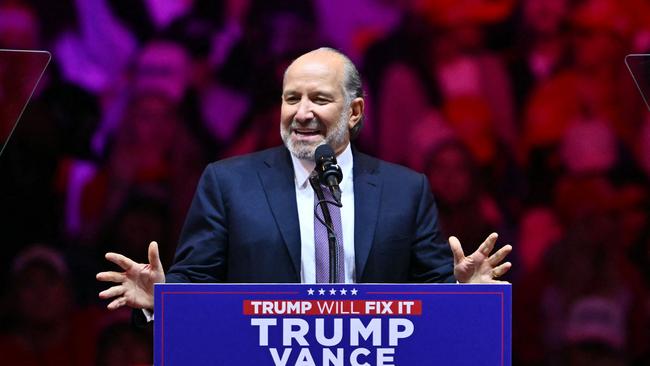
Cantor Fitzgerald Chief Executive Howard Lutnick hired thousands of employees after most of his company’s New York staff was killed on Sept. 11, 2001. Now he is in charge of lining up candidates for a similar number of jobs in the event of a second Trump administration.
Lutnick, 63 years old, is MAGA’s top emissary on Wall Street, a place where some executives have embraced former President Donald Trump’s tax policies but are leery of the tone of his rallies. Trump, a longtime friend, appointed Lutnick co-chair of his transition team in August. His mandate is to compile shortlists of candidates for jobs ranging from attorney general to the deputy solicitor for water resources.
The billionaire says his experience running Cantor, a small empire he has dubbed “the biggest little guy” in finance, makes him uniquely suited for the role.
Terrorists flew a pair of passenger jets into the Twin Towers of the World Trade Center 23 years ago, killing all 658 Cantor employees who were in the office that morning. Lutnick, who wasn’t at work because he was taking his son to his first day of kindergarten, made headlines as the CEO who wept on the news. He has spent the decades since rebuilding the business, finding success in niches such as crypto and the blank-check company craze of a few years ago.
Now he has joined Trump’s new inner circle of advisers from the business world. Elon Musk is on board as the chief red-tape cutter. Investors John Paulson and Scott Bessent are dispensing economic advice and jockeying for the job of Treasury secretary.
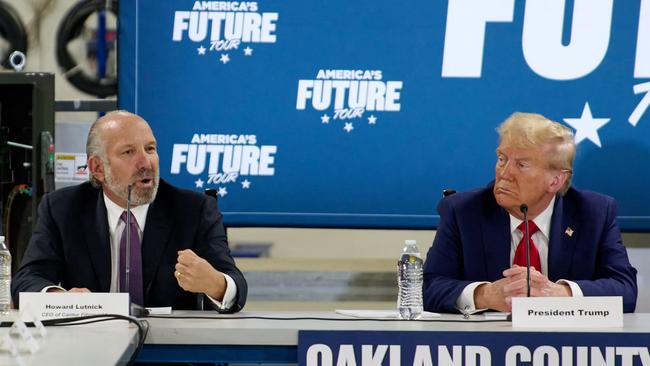
Lutnick had a top speaking slot Sunday at Trump’s Madison Square Garden rally. He is making the rounds on cable television to tout the former president’s policies. On Wednesday night, he questioned the safety of vaccines for children in an appearance on CNN.
He also tagged along with Trump to a campaign event in Michigan and a visit to the grave of an Orthodox Jewish leader.
Lutnick said in an interview in his Midtown Manhattan office that a second Trump administration would look different than the first. His team isn’t interested in people such as former Defense Secretary Jim Mattis and former chief of staff John Kelly, who both worked in the first Trump administration, had their own ideas about how to do their jobs and eventually publicly condemned their former boss. Rather, Lutnick said, hires will “be loyal to the policies of the president.”
Tragedy strikes
Lutnick grew up on Long Island, N.Y., the son of a history professor and an artist. His parents died a few years apart when he was a teenager and left behind no money. After college, he went to work at Cantor, a brokerage company whose founder, Bernie Cantor, was known for his collection of Auguste Rodin sculptures.
Cantor’s headquarters occupied some of the highest floors at the World Trade Center’s North Tower. Lutnick elbowed his way to the top of the company before turning 30. After the founder’s health deteriorated, Lutnick and Cantor’s family had a legal dispute for control. The two sides settled, and Lutnick solidified his position.
When the aircraft struck the building on Sept. 11, 2001, Cantor’s staffers had no way to escape before the tower collapsed. The company liked to hire employees’ family members, so the death toll included several sets of siblings. Lutnick’s brother was killed.
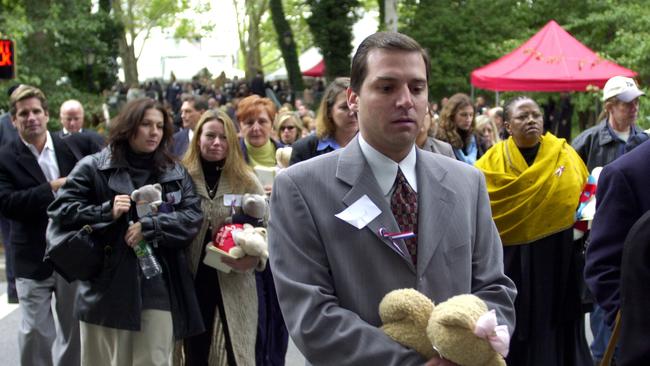
Two days later, he broke down sobbing in an interview. “Howard Lutnick, a personality this country will not forget. Period,” ABC News anchor Peter Jennings said.But public sentiment quickly turned on him when it came out that the company stopped paying its dead employees, a move he said at the time was necessary to keep the company afloat. Lutnick instead gave the families more than $90 million from his own savings. They also received a cut of the company’s profits for five years and other funds, which eventually worked out to an additional more than $180 million.
‘The biggest little guy’
Lutnick owns the majority of privately held Cantor Fitzgerald, which controls three companies, two of which are publicly traded. BGC Group is the old brokerage business, which arranges trades of bonds and other securities for the biggest banks. That company is behind an effort to dethrone the exchange giant CME Group.
Newmark Group is a commercial real-estate broker. A third company called Cantor offers investment-banking services.
The company has ventured into some controversial corners of finance. A foray into sports betting led to a more than $22 million penalty for illegal gambling and money laundering. The unit was sold off in 2020. It has embraced crypto, which many larger companies avoid. Last year, the Journal reported that the secretive Hong Kong-based owner of the stablecoin tether used Cantor Fitzgerald to help oversee its $39 billion bond portfolio.
Cantor Fitzgerald now has 13,000 employees around the world, compared with about 2,000 after 9/11.
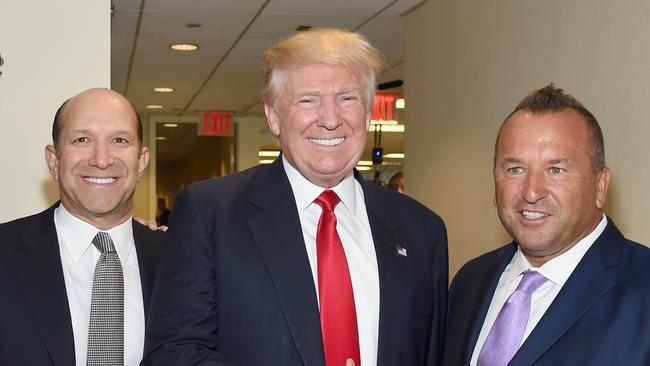
These days, Lutnick works for his companies from 6:30 a.m. to 9 a.m. and 4 p.m. to 10:30 p.m. In between, he volunteers for the Trump transition team. He is in back-to-back meetings with potential candidates and the executives and politicians vouching for them.
Cantor Fitzgerald, with its office in New York, employs 13,000 people around the world. Photo: Amir Hamja for WSJ
Recommendations come in from executives including Apollo Global Management head Marc Rowan and brokerage founder Charles Schwab. In the middle of a meeting with a Journal reporter, a senator called.
Lutnick credits his rise at Cantor in part to wooing potential clients over drinks. And he doesn’t shy away from a hard sell.
Years ago, he wanted to hire Alice Greenwald from the U.S. Holocaust Memorial Museum to be the director of National September 11 Memorial & Museum, where he sits on the board. When she declined, he told her having to watch someone else do the job was going to ruin her life.
He said she accepted the job a few days later.
Trump calls
Lutnick, a registered Republican, has donated to politicians in both parties over the years. In the 2016 election, he gave to Democratic presidential candidate Hillary Clinton and to Kamala Harris, who was running to represent California in the U.S. Senate, according to OpenSecrets.org. He also donated to Republican presidential candidates Jeb Bush and Trump in that election cycle.
He first met Trump, whom he calls DJT, attending charity events in New York decades ago. More recently, the men played golf together. Lutnick and his wife, Allison, who have four children, gave to Trump’s 2020 re-election bid.
If Donald Trump wins the presidential election, what kinds of people should he hire? Join the conversation below.
“For my whole life I was a fiscal conservative, social liberal…The Democratic Party moved away from me,” he said, citing the party’s approach to illegal immigration as one example.
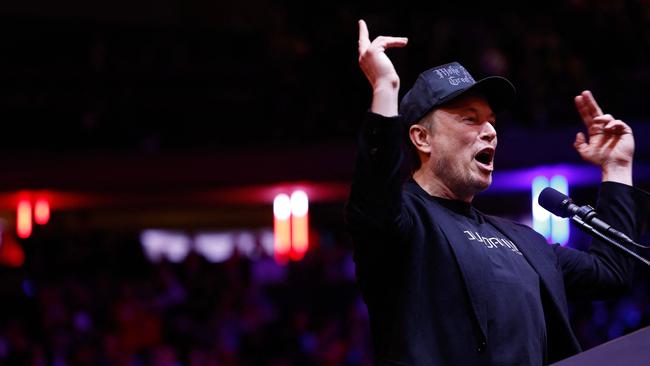
Trump called him about a year ago to ask him to help with his presidential bid. Lutnick hosted a $15 million fundraiser for the candidate at his Hamptons home over the summer.
Musk took the stage with Lutnick at the Madison Square Garden rally. The pair of billionaires told the packed arena that they plan to create a Department of Government Efficiency, or DOGE, a cheeky nod to a cryptocurrency inspired by a Shiba Inu.
“How much do you think we can rip out of this wasted, $6.5 trillion Harris-Biden budget?” Lutnick asked Musk.
“I think we could do at least $2 trillion,” Musk said.
“Yeah!” Lutnick yelled, pumping his fist. The crowd cheered.
The Wall Street Journal



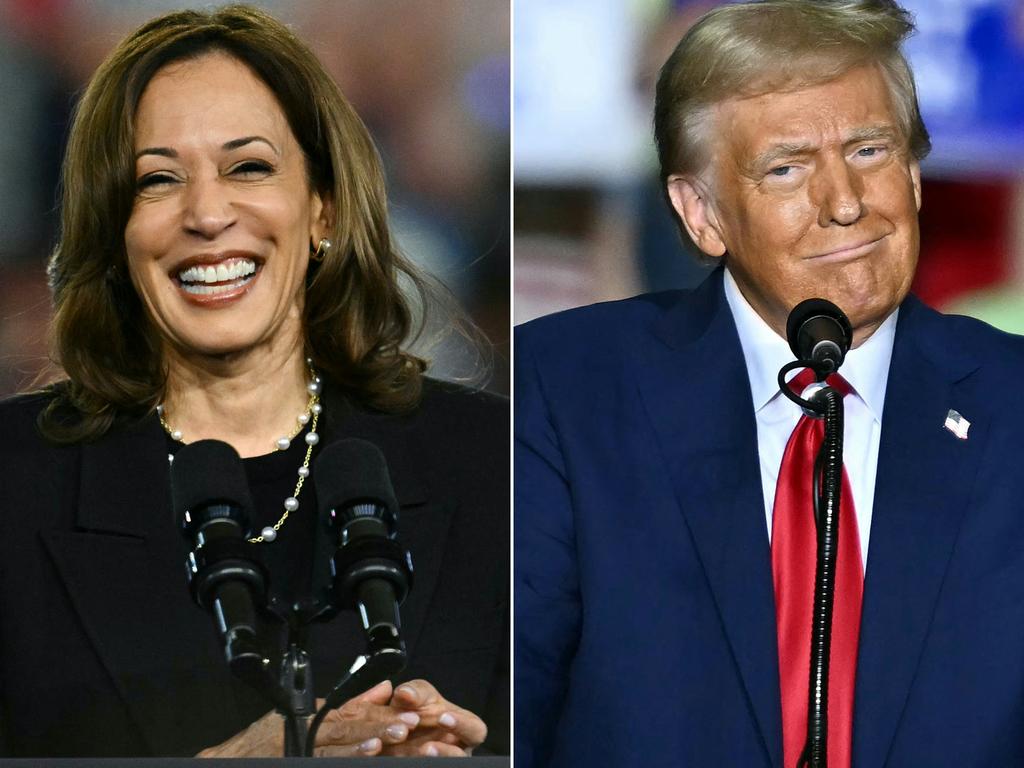

To join the conversation, please log in. Don't have an account? Register
Join the conversation, you are commenting as Logout